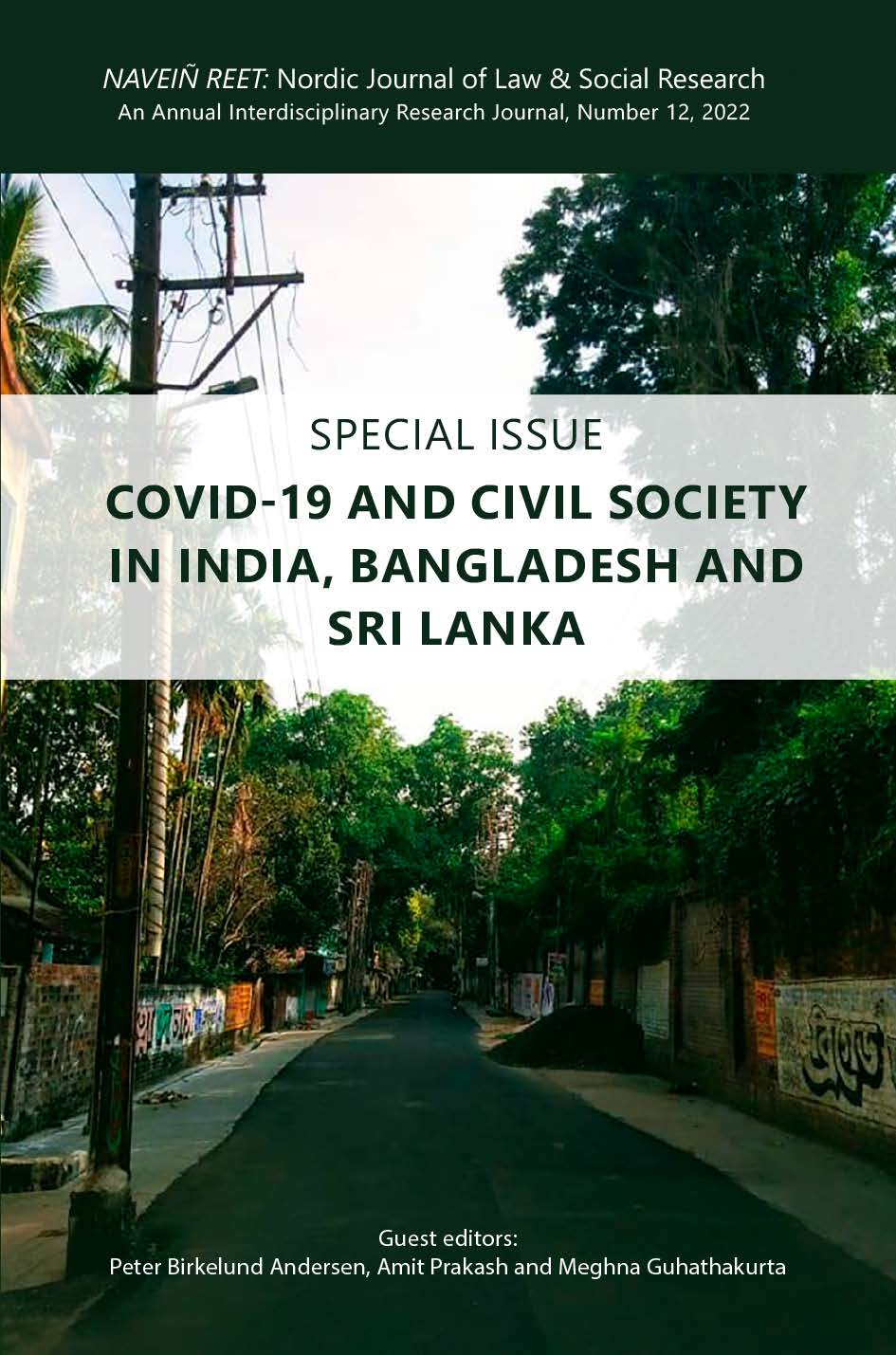Civil Society’s Response to Covid–19-Affected Migrants
The Case of Bangladesh
Abstract
This article explores civil society’s response to the plight of international migrant workers during the pandemic. Taking Bangladesh as a case, it depicts civil society’s engagement with migrants’ issues and analyses factors that shaped their relations with the state and other actors. As demonstrated in the article, despite their fast and first response through service delivery and awareness campaigns, civil society’s role was greatly affected by resource constraints and the state’s dominance. The civil society, however, found its success in influencing the state to mobilise its resources for Covid-impacted migrants. Governed by values such as autonomy, solidarity and partnership, civil society activities in this case resemble supplementary and adversarial models of state–civil society relations. The findings offer useful insights into the construction of ‘civil society’ in a South Asian setting, and its ability to support vulnerable communities during a crisis.
Downloads
Published
How to Cite
Issue
Section
License
Counting from number 12 (2022), articles published in NNJLSR are licensed under Attribution 4.0 International (CC BY 4.0). Readers are allowed to copy and redistribute the articles in any medium or format, to adapt and revise the articles, and use the articles for commercial purposes, provided that the readers give appropriate credits.
No Creative Commons licenses are applied on articles in number 1 (2009)-11 (2021). All rights reserved by the authors. Readers are allowed to download, read, and link to the articles published in volume 1 (2009)-11 (2021), but they may not republish or redistribute these articles without permission of the authors.

